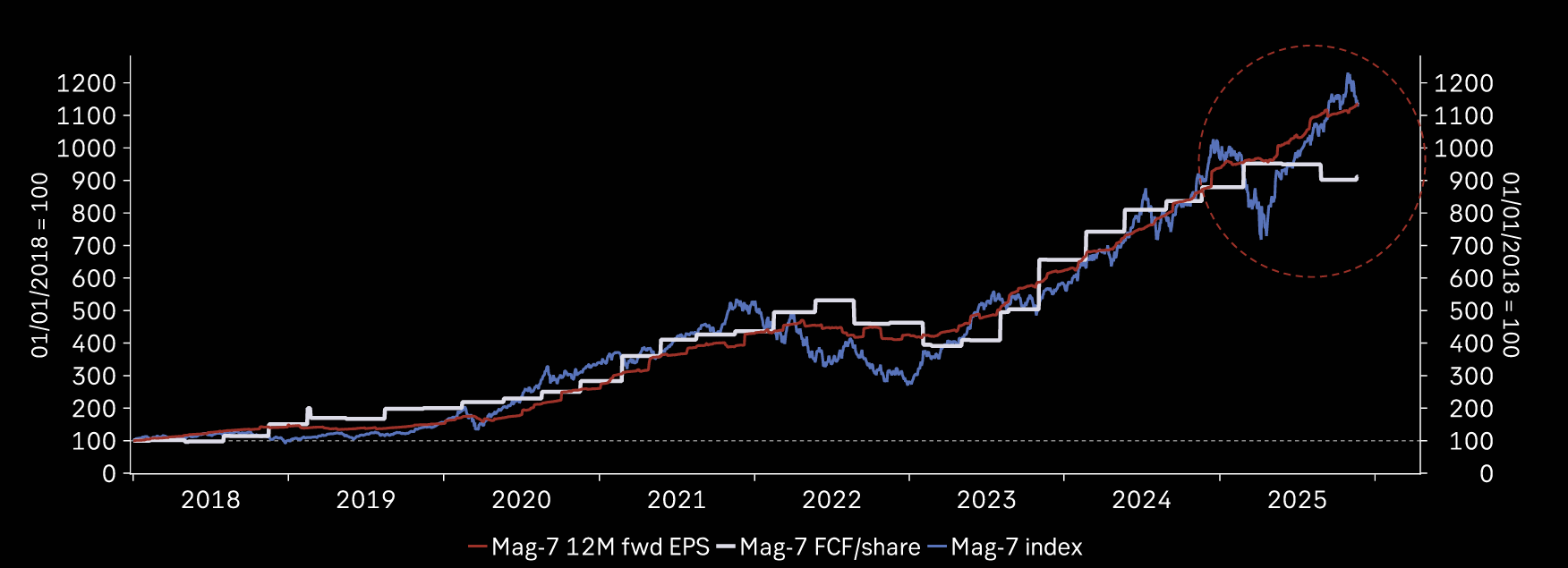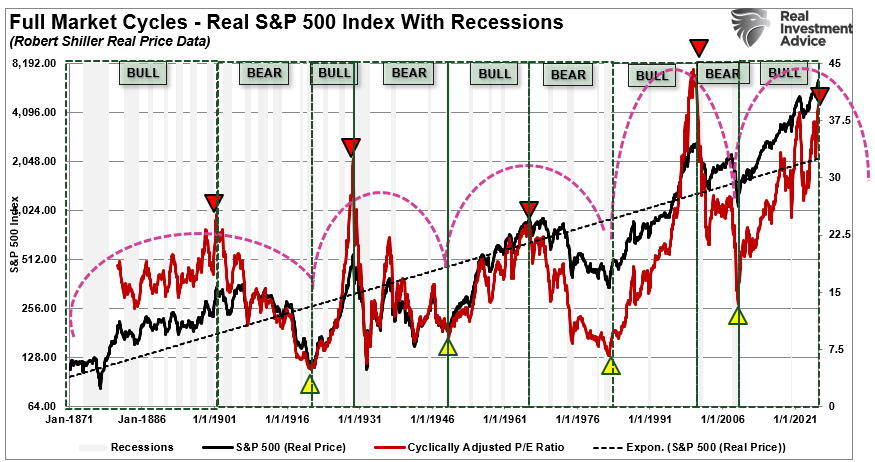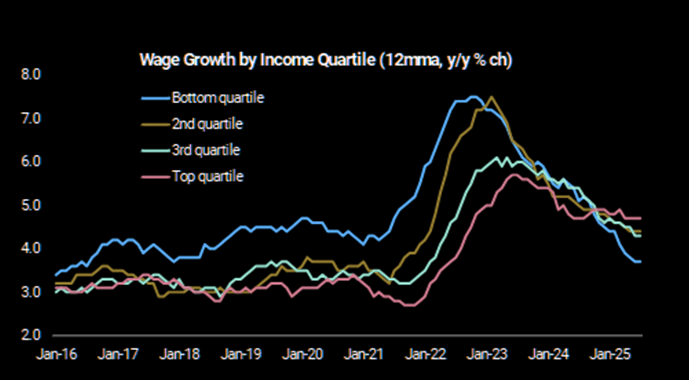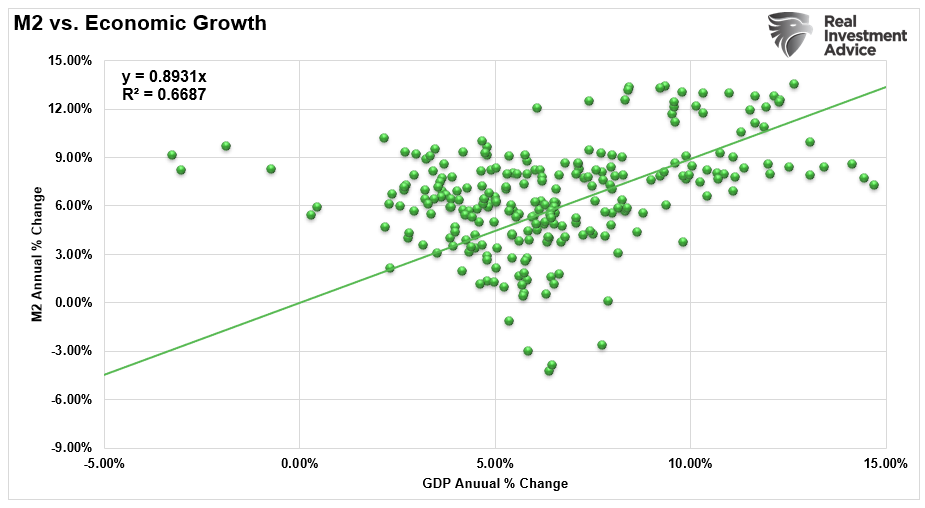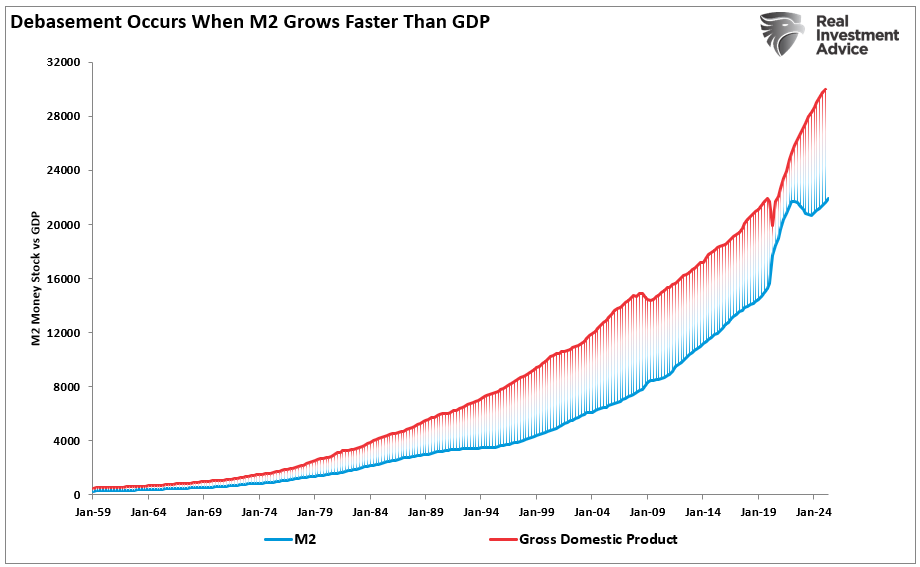Central banks are currently creating the mother of all bubbles. To my view it was caused by masses of cheap labor in China that entered the global economy in the early 1990s.
This reduced inflation and interest rates, while Chinese productivity continously improved, in particular when rural workers came into the cities.
The mother of all bubbles will pop at the latest, when Chinese wages approach Western levels.
An economic bubble is essentially an economic activity that cannot sustain itself without a continuous influx of new money and credit to bid away real resources from self-funding endeavors. Financial bubbles are obviously closely related as financial assets are derivatives of underlying real production of goods and services. For example, an Apple stock is a derivative of the economic good emanating from peoples use of their cell phones. If the value placed on the services rendered from their product is high, the financial asset should reflect this through a high share price.
Aggregating this concept to include all assets and all production does not change the conclusion; valuations must reflect output somehow. In other words, there should be a causal connection between the value of assets and their ability to create output.
| Quantitatively we can express this relationship by looking at the “Household Net Worth” time-series found in the Financial Accounts of the United States, compiled by the Federal Reserve (source) and nominal GDP as reported by the Bureau of Economic Research (source). We use the household net worth data because it is ultimately households that own all the productive assets in the economy so this is one of the closest thing we come to economy wide asset valuation which should correspond to NGDP, the widest measurement of output. To compare the two, we calculate growth rates of both and rebase them one for the first quarter of 1990.
Nominal GDP obviously reflect the economy’s ability to generate money income which can be used to, among other things, service cost of capital. Asset valuations reflect, or should reflect, a market view of the amount of money income the economy will be able to produce in the future. Elevated asset valuations are thus a reflection of exuberant expectations about economic output that will come. If for some reason that output fail to materialize, the expected money income will also be absent and overly optimistic valuations must be realigned with the new reality. In the chart below we clearly see how high spirits can push valuations far above what underlying fundamentals suggest reasonable. Since 1990 we have seen three distinct “bubbles” and unsurprisingly every time reality has kicked in and brought exuberance back to earth. It is no reason to think the current, and so far largest on record, deviation from fundamentals will not crash and revert back to the NGDP line. |
|
| We can look even further back in time and conclude that these massive financial bubbles are a recent phenomenon that did not occur in the pre-Greenspan era. Household net worth used to be around three times NGDP and would occasionally trade a standard deviation away from its mean, but ultimately revert back. With Greenspan at the helm things changed because along with him came a new group of academics arguing, as Keynes before them, that a semi-boom could be maintained indefinitely. Keynes argued it could be achieved through intelligent fiscal policy, while the new breed of hacks now claimed monetary policy guided by scientific method would ensure eternal bliss. In the beginning it even seemed to work, but people fail to understand that expanding the medium of exchange only redistribute capital away from wealth producers to wealth consumers. It is like having a party on your credit card; fun while it lasts, but only help make you poorer over the longer term. |
With concepts like wealth effects (the illusion of being rich, when you are not) and propensity to consume, our leaders actually believe they can sustain economic prosperity without proper wealth creation. The bubbles depicted above are obvious for all to see. The idea that you can be rich only if your neighbor feel rich and your neighbor can be rich only if you feel rich is so preposterous and ingenuous that it is actually hard to comprehend that educated people seriously believe in such notions. Do Janet Yellen really believe she can move rates gradually (we said gradually) higher without popping yet another bubble? It must per definition pop because it cannot sustain itself without being able to bid on the shrinking pie of wealth. Higher rates will make it impossible for these bubbles to continue fund themselves whilst refraining from hiking rates means the pie will shrink more and more as wealth creators are increasingly robbed of their funding. The future path is thus laid down for us and there is nothing we can do at this juncture to avoid the consequences of our past folly.
Tags: bubble,central-banks,Economics,Monetary Policy,newslettersent,US



























